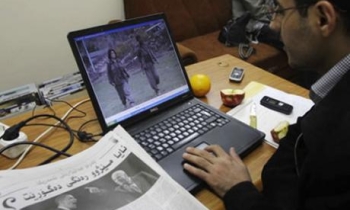With more Muslim countries clamming up on Denmark and Islamic radicals increasingly clamouring for a boycott of the Scandinavian country over the prophet cartoons controversy, trade relations between the Danish government and those in the Middle East stand in the danger of a possible breakdown.

Danish newspaper Jyllands-Posten had invited cartoonists to submit drawings of the prophet Mohammed after an author complained that nobody dared illustrate his book on Mohammed. The newspaper published 12 cartoons drawn by eight illustrators on September 30, calling them a test of whether fear of Islamic retribution had begun to limit freedom of expression in Denmark. The cartoons caused an uproar among Muslims both in Denmark and abroad. Islam considers images of prophets disrespectful and caricatures of them blasphemous.
Saudi Arabia, the birthplace of Islam and prophet Mohammad, recalled its ambassador to Copenhagen on January 26 saying Denmark had not done enough to assuage Muslim anger. The move came after pressure from Saudi clerics and a popular boycott against Danish goods, Reuters reported. Danish-Swedish dairy corporation Arla Foods said stones were thrown at a company car in one incident.
The latest to join the banwagon was Libya, which on Sunday, said it was shutting down its embassy in Denmark to protest against the Danish government's silence over the cartoons. The Libyan Foreign Ministry in a statement carried by state news agency Jana said Tripoli would also take unspecified "economic measures" against Denmark.
"Because the Danish media had continued to show disrespect to the Prophet Mohammed and because the Danish authorities failed to take any responsible action on that, Libya decided to close its embassy in Copenhagen," the ministry said. Officials were not available to comment on what economic measures Libya will take.
Jyllands-Posten, however, has rejected criticism that it was responsible for a breakdown in trade relations between Denmark and parts of the Middle East. Jyllands-Posten "cannot and will not" apologise for the cartoons, its editor-in-chief, Carsten Juste, said in a statement published on the Aarhus-based newspaper's website on Sunday.

"The situation is uncomfortable, but the fact that there are now also economic interests involved doesn't change anything. If we were to apologise for having published the cartoons, we'd be letting down generations who have fought for freedom of speech."
The director of the Confederation of Danish Industries, Hans Skov Christensen, wrote an open letter last week contending that Jyllands-Posten should be made to answer for the "obvious consequences" of its decision to publish the cartoons.
Meanwhile, the 57-nation Organisation of the Islamic Conference (OIC), the world's largest Muslim body, on Saturday called on Muslims to stick to peaceful protest in a row over Danish cartoons seen as offensive to the prophet Mohammad, a Reuters report said. The OIC said Denmark should have "categorically condemned" the cartoons.
"We ask members of the Islamic nation to express their opinion in a civilised and peaceful manner and not to fall into mistakes that are not worthy of the Prophet," Secretary-General Ekmelettin Ihsanoglu told reporters in the Saudi city of Jeddah. "The failure to categorically condemn the cartoons by the Danish authorities may set a dangerous precedent, which has already been seen in the republication of the cartoons in Norway," an OIC statement said.
Earlier this month, Magazinet, a Norwegian Christian magazine, republished the same cartoons, evoking anger from Muslims both in Norway and elsewhere. Norway said on Thursday that it had advised its Middle East embassies to voice regret that the Oslo-based publication had run reprints of the cartoons.

"We have sent out a letter to our embassies with any advice they might need," Anne Lene Dale Sandsten, spokesperson for the Norwegian Foreign Ministry, said. Dale Sandsten declined to give details of the letter but a draft published in the Norwegian daily Aftenposten expressed regret about the publication of the cartoons.
"The caricatures in the Christian publication Magazinet are not constructive to build the needed bridges between people of differing religious beliefs and ethnic backgrounds," it said. "Rather, they create mistrust and unnecessary conflict."
Magazinet editor, Vebjoen Selbekk, said he published the cartoons in the name of free speech. "We have a great threat to freedom of speech in Western society and somebody has to confront it," he told Reuters. He said he had received 15 death threats and over 1,000 hate letters since publishing the cartoons – all from the Middle East.









